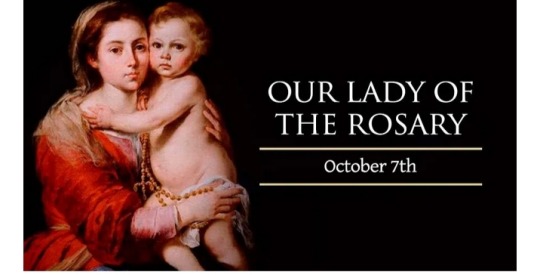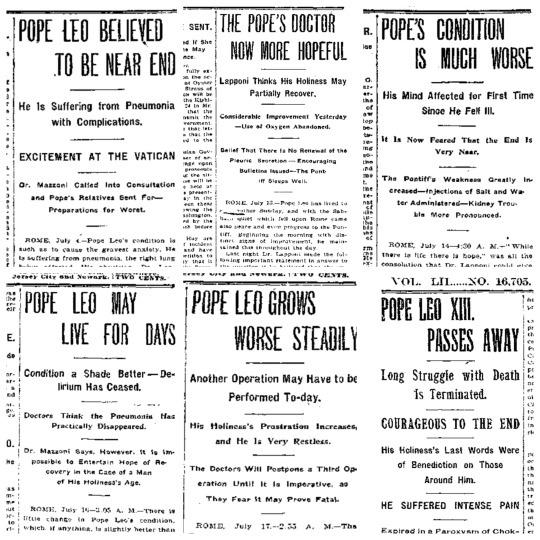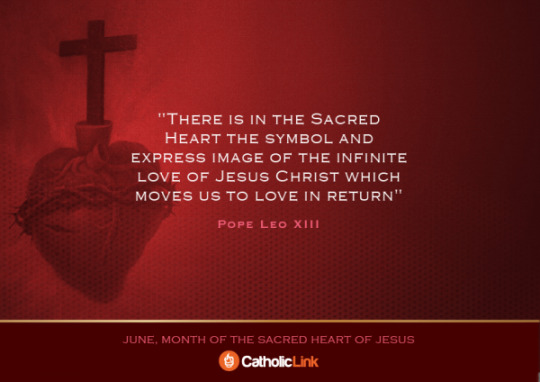#Pope Leo XIII
Note
What are the oldest books in your personal library? Do you have anything from the 1800s?
I do have a handful of books from the 19th Century. I think that my oldest book is one of the coolest items in my collection. I have a first edition copy of Volume I of the Personal Memoirs of Ulysses S. Grant, which is from 1885. It's not in perfect condition, of course, but it's good enough and the best part is that I found it in a used bookstore, right on a normal shelf, mixed in with other random titles. Hopefully I can find a first edition copy of Volume II someday for a good price.
I also have a single-volume collection of the Lincoln-Douglas debates that is from 1894 (it's in pretty rough shape, unfortunately). I have two of the volumes from the 1897 edition of A Compilation of the Messages and Papers of the Presidents, which all look like this and aren't too difficult to find now-and-then in used bookstores:

Two other older books that I have from shortly after the turn of the century are a couple of my favorites because they look so cool. One is The Illustrious Life of William McKinley: Our Martyred President, which was published in 1901 right after President McKinley was assassinated:

And I've previously shared these pics of The Life of Pope Leo XIII: From His Personal Memoirs, which was published in 1903, just a few months before Pope Leo XIII died. I don't remember where I got this book, but it's gorgeous and in pretty good edition for a 120-year-old book:


#Books#Book Collection#Library#Books & Libraries#Personal Library#Book Collecting#Bibliophile#My Library#Old Books#William McKinley#President McKinley#Pope Leo XIII#Personal Memoirs of Ulysses S. Grant#Ulysses S. Grant#President Grant#General Grant
15 notes
·
View notes
Text
“The Church, indeed, deems it unlawful to place the various forms of divine worship on the same footing as the true religion, but does not, on that account, condemn those rulers who, for the sake of securing some great good or of hindering some great evil, allow patiently custom or usage to be a kind of sanction for each kind of religion having its place in the State. And, in fact, the Church is wont to take earnest heed that no one shall be forced to embrace the Catholic faith against his will, for, as St. Augustine wisely reminds us, "Man cannot believe otherwise than of his own will."”
- Pope Leo XIII, Immortale Dei
31 notes
·
View notes
Text
On This Day In History
May 15th, 1891: Pope Leo XIII published the Rerum novarum, beginning modern Catholic social teaching. It prioritizes helping the suffering of the working class, supports the right to form unions, and the necessity of civil authorities to protect workers' rights.
200 notes
·
View notes
Text
Prayer to St Michael the Archangel (long version)
O Glorious Prince of the heavenly host, St. Michael the Archangel, defend us in the battle and in the terrible warfare that we are waging against the principalities and powers, against the rulers of this world of darkness, against the evil spirits. Come to the aid of man, whom Almighty God created immortal, made in His own image and likeness, and redeemed at a great price from the tyranny of Satan.
Fight this day the battle of the Lord, together with the holy angels, as already thou hast fought the leader of the proud angels, Lucifer, and his apostate host, who were powerless to resist thee, nor was there place for them any longer in Heaven. That cruel, ancient serpent, who is called the devil or Satan who seduces the whole world, was cast into the abyss with his angels. Behold, this primeval enemy and slayer of men has taken courage. Transformed into an angel of light, he wanders about with all the multitude of wicked spirits, invading the earth in order to blot out the name of God and of His Christ, to seize upon, slay and cast into eternal perdition souls destined for the crown of eternal glory. This wicked dragon pours out, as a most impure flood, the venom of his malice on men of depraved mind and corrupt heart, the spirit of lying, of impiety, of blasphemy, and the pestilent breath of impurity, and of every vice and iniquity.
These most crafty enemies have filled and inebriated with gall and bitterness the Church, the spouse of the immaculate Lamb, and have laid impious hands on her most sacred possessions. In the Holy Place itself, where the See of Holy Peter and the Chair of Truth has been set up as the light of the world, they have raised the throne of their abominable impiety, with the iniquitous design that when the Pastor has been struck, the sheep may be scattered.
Arise then, O invincible Prince, bring help against the attacks of the lost spirits to the people of God, and give them the victory. They venerate thee as their protector and patron; in thee holy Church glories as her defense against the malicious power of hell; to thee has God entrusted the souls of men to be established in heavenly beatitude. Oh, pray to the God of peace that He may put Satan under our feet, so far conquered that he may no longer be able to hold men in captivity and harm the Church. Offer our prayers in the sight of the Most High, so that they may quickly find mercy in the sight of the Lord; and vanquishing the dragon, the ancient serpent, who is the devil and Satan, do thou again make him captive in the abyss, that he may no longer seduce the nations. Amen.
V. Behold the Cross of the Lord; be scattered ye hostile powers.
R. The Lion of the tribe of Judah has conquered, the root of David.
V. Let Thy mercies be upon us, O Lord.
R. As we have hoped in Thee.
V. O Lord, hear my prayer.
R. And let my cry come unto Thee.
Let us pray. O God, the Father of our Lord Jesus Christ, we call upon Thy holy Name, and as supplicants, we implore Thy clemency, that by the intercession of Mary, ever Virgin Immaculate and our Mother, and of the glorious St. Michael the Archangel, Thou wouldst deign to help us against Satan and all the other unclean spirits who wander about the world for the injury of the human race and the ruin of souls. Amen.
12 notes
·
View notes
Text
About the popes: Leo XIII, Pius X, Benedict XV, Pius XI, Pius XII, John XXIII, Paul VI, John Paul I, John Paul II
this may or may not inspire a pope tournament one of these days
#catholic#catholicism#popes#vatican#pope#pope john paul ii#pope john paul i#pope paul vi#pope john xxiii#pope pius x ii#pope pius xi#pope pius x#pope benedict xv#pope leo xiii
16 notes
·
View notes
Text
Whoever has received from the divine bounty a large share of temporal blessings, whether they be external and material, or gifts of the mind, has received them for the purpose of using them for the perfecting of his own nature, and, at the same time, that he may employ them, as the steward of God's providence, for the benefit of others.
— Pope Leo XIII
#quotes#quote#wisdom#lifequotes#light#quoteoftheday#leo XIII#Pope Leo XIII#quote of the day#life quotes#divine#bounty#divine bounty#providence#temporal blessings#blessings#gifts of the mind#purpose#maturation#maturity#perfecting one's own nature#god#benefit#service#service to others#generosity#interbeing#oneness#interconnectedness#human nature
3 notes
·
View notes
Text
“Hence, man not only should possess the fruits of the earth, but also the very soil, inasmuch as from the produce of the earth he has to lay by provision for the future. Man's needs do not die out, but forever recur; although satisfied today, they demand fresh supplies for tomorrow. Nature accordingly must have given to man a source that is stable and remaining always with him, from which he might look to draw continual supplies. And this stable condition of things he finds solely in the earth and its fruits. There is no need to bring in the State. Man precedes the State, and possesses, prior to the formation of any State, the right of providing for the substance of his body.”
— Pope Leo XIII, Rerum Novarum: On the Duties of Capital & Labor (7)
55 notes
·
View notes
Text

A photograph of my favorite Pope Leo XIII.
#traditional catholicism#traditional catholic images#pre vatican ii council catholism#traditional catholic popes#my favorite pope#pope leo xiii
7 notes
·
View notes
Text
Feast of Our Lady of the Rosary

On October 7, the Roman Catholic Church celebrates the yearly feast of Our Lady of the Rosary.
Known for several centuries by the alternate title of “Our Lady of Victory,” the feast day takes place in honor of a 16th century naval victory, which secured Europe against Turkish invasion.
Pope St. Pius V attributed the victory to the intercession of the Blessed Virgin Mary, who was invoked on the day of the battle through a campaign to pray the Rosary throughout Europe.
The feast always occurs one week after the similar Byzantine celebration of the Protection of the Mother of God, which most Eastern Orthodox Christians and Eastern Catholics celebrate on October 1.
This is in memory of a 10th-century military victory, which protected Constantinople against invasion after a reported Marian apparition.
Pope Leo XIII was particularly devoted to Our Lady of the Rosary, producing 11 encyclicals on the subject of this feast and its importance in the course of his long pontificate.
In the first of them, 1883's “Supremi Apostolatus Officio,” he echoed the words of the oldest known Marian prayer (known in the Latin tradition as the “Sub Tuum Praesidium”), when he wrote:
“It has always been the habit of Catholics in danger and in troublous times to fly for refuge to Mary.”
“This devotion, so great and so confident, to the august Queen of Heaven,” Pope Leo continued, “has never shone forth with such brilliancy as when the militant Church of God has seemed to be endangered by the violence of heresy … or by an intolerable moral corruption, or by the attacks of powerful enemies.”
Foremost among such 'attacks' was the Battle of Lepanto, a perilous and decisive moment in European and world history.
Troops of the Turkish Ottoman Empire had invaded and occupied the Byzantine empire by 1453, bringing a large portion of the increasingly divided Christian world under a version of Islamic law.
For the next hundred years, the Turks expanded their empire westward on land and asserted their naval power in the Mediterranean.
In 1565, they attacked Malta, envisioning an eventual invasion of Rome. Though repelled at Malta, the Turks captured Cyprus in the fall of 1570.
The next year, three Catholic powers on the continent – Genoa, Spain, and the Papal States - formed an alliance called the Holy League, to defend their Christian civilization against Turkish invasion.
Its fleets sailed to confront the Turks near the west coast of Greece on 7 October 1571.
Crew members on more than 200 ships prayed the Rosary in preparation for the battle - as did Christians throughout Europe, encouraged by the Pope to gather in their churches to invoke the Virgin Mary against the daunting Turkish forces.
Some accounts say that Pope Pius V was granted a miraculous vision of the Holy League's stunning victory.
Without a doubt, the Pope understood the significance of the day's events, when he was eventually informed that all but 13 of the nearly 300 Turkish ships had been captured or sunk.
He was moved to institute the feast now celebrated universally as Our Lady of the Rosary.
“Turkish victory at Lepanto would have been a catastrophe of the first magnitude for Christendom,” wrote military historian John F. Guilmartin, Jr., “and Europe would have followed a historical trajectory strikingly different from that which obtained.”
#Feast of Our Lady of the Rosary#Our Lady of Victory#Pope St. Pius V#Pope Leo XIII#Constantinople#Battle of Lepanto#Holy League#Pope Pius V#Blessed Virgin Mary
15 notes
·
View notes
Text
[I]t will be necessary to keep in mind that the main thread and, in a certain sense, guiding principle of Pope Leo's Encyclical [Rerum novarum], and of all the Church's social doctrine, is a correct view of the human person and of his unique value, inasmuch as "man . . . is the only creature on earth which God willed for itself" [Gaudium et Spes, §24c]. God has imprinted His own image and likeness on man (cf. Gen 1:26), conferring upon him an incomparable dignity, as the Encyclical frequently insists. In effect, beyond the rights which man acquires by his own work, there exist rights which do not correspond to any work he performs, but which flow from his essential dignity as a person.
- Pope John Paul II (Centesimus Annus, §11c)
#Catholicism#Christianity#Imago Dei#human dignity#Centesimus Annus#Gaudium et Spes#Rerum novarum#Pope John Paul II#Pope Leo XIII
11 notes
·
View notes
Photo

I find old, front-page newspaper headlines from throughout history endlessly fascinating, and for two weeks in July 1903, the coverage by the New York Times of 93-year-old Pope Leo XIII’s illness and death was quite the rollercoaster ride, and the Times reported every peak, valley, turn and loop. And they did so literally every day for over two weeks. I’m surprised they aren’t still publishing alternating reports about how Pope Leo is feeling. Check out the day-to-day headlines from July 5, 1903-July 21, 1903:
•July 5, 1903: POPE LEO BELIEVED TO BE NEAR END: He Is Suffering from Pneumonia with Complications
•July 6, 1903: DYING POPE IS KEPT ALIVE BY STIMULANTS: Physicians Hope to Prolong Life a Few Days
•July 7, 1903: POPE LEO ALIVE, BUT NEAR DEATH: Very Feeble and in Pain, Though His Mind Is Clear
•July 8, 1903: POPE FACES DEATH WITH LION HEART: Submits to an Operation with Marvelous Cheerfulness
•July 9, 1903: POPE LEO IS STILL BATTLING FOR LIFE: He Is Now Afflicted by a Combination of Diseases
•July 10, 1903: THE POPE SUFFERS ANOTHER RELAPSE: Dr. Lapponi Now Says His Condition Is Beyond Hope
•July 11, 1903: POPE’S CONDITION AGAIN IMPROVES: His Holiness Is Relieved by Another Operation
•July 12, 1903: POPE LEO’S LIFE IN SLOWLY EBBING: Had a Fair Day, but Grew Worse in the Night
•July 13, 1903: THE POPE’S DOCTOR IS NOW MORE HOPEFUL: Lapponi Thinks His Holiness May Partially Recover
•July 14, 1903: POPE’S CONDITION IS MUCH WORSE: His Mind Affected for First Time Since He Fell Ill
•July 15, 1903: POPE RALLIES AFTER SINKING VERY LOW: Gets Out of Bed, Transacts Business, and Sees Cardinals
•July 16, 1903: POPE MAY LIVE FOR DAYS: Condition a Shade Better -- Delirium Has Ceased
•July 17, 1903: POPE LEO GROWS WORSE STEADILY: Another Operation May Have to be Performed To-Day
•July 18, 1903: POPE’S CONDITION IS SLIGHTLY IMPROVED: But the Doctors Entertain No Hope of His Recovery
•July 19, 1903: POPE SINKING AFTER A SLEEPLESS NIGHT: General Failure Noted of Pontiff’s Vital Forces
•July 20, 1903: POPE LEO NOW IN A STATE OF COMA: It Is Believed That the End is Very Near
•July 21, 1903: POPE LEO XIII PASSES AWAY: Long Struggle with Death Is Terminated
#Newspaper Headlines#Front Page Headlines#New York Times#History#Random History#News#Newspapers#Pope Leo XIII#Leo XIII#Popes#Papal History#Papacy#Vatican#Death of Pope Leo XIII
27 notes
·
View notes
Text
“It follows clearly, therefore, that Catholics have just reasons for taking part in the conduct of public affairs. For in so doing they assume not nor should they assume the responsibility of approving what is blameworthy in the actual methods of government, but seek to turn these very methods, so far as is possible, to the genuine and true public good, and to use their best endeavours at the same time to infuse, as it were, into all the veins of the State the healthy sap and blood of Christian wisdom and virtue. The morals and ambitions of the heathens differed widely from those of the Gospel, yet Christians were to be seen living undefiled everywhere in the midst of pagan superstition, and, while always true to themselves, coming to the front boldly wherever an opening was presented. Models of loyalty to their rulers, submissive, so far as was permitted, to the sovereign power, they shed around them on every side a halo of sanctity; they strove to be helpful to their brethren, and to attract others to the wisdom of Jesus Christ, yet were bravely ready to withdraw from public life, nay, even to lay down their life, if they could not without loss of virtue retain honours, dignities, and offices. For this reason, Christian ways and manners speedily found their way not only into private houses but into the camp, the senate, and even into the imperial palaces.” “So that the Christian faith, when once it became lawful to make public profession of the Gospel, appeared in most of the cities of Europe, not like an infant crying in its cradle, but already grown up and full of vigour.”
- Pope Leo XIII, Immortale Dei
11 notes
·
View notes
Text

Kaiser Wilhelm II and his wife Empress Augusta Victoria with Pope Leo XIII
#kaiser wilhelm ii#empress augusta viktoria of germany#pope leo xiii#german imperial family#prussian royal family#catholic church#german history#house of hohenzollern
10 notes
·
View notes
Text
Super short lesson on what an encyclical is: a special letter from the pope that is meant to be addressed to a wide range of people, on a big social issue of the day. The modern concept of papal encyclicals was kicked off by Leo XIII's Rerum novarum, on work and human labor, in which he decried poor working conditions and defended unions and good wages. Papal encyclicals are foundational to what is known as Catholic social teaching or Catholic social thought, the social justice tradition of the Church.
Rerum novarum
Mater et magistra
Pacem in terris
Populorum progressio
Humanae vitae
Evangelium vitae
Fides et ratio
Deus caritas est
Caritas in veritate
Laudato si'
Fratelli tutti
#catholic popes#papal encyclicals#rerum novarum#mater et magistra#pacem in terris#populorum progressio#humanae vitae#evangelium vitae#fides et ratio#deus caritas est#caritas in veritate#laudato si#fratelli tutti#pope francis#pope benedict xvi#pope john paul ii#pope john xxiii#pope paul vi#pope leo xiii#catholic#catholicism#theology
10 notes
·
View notes
Video
youtube
Pope Leo XIII, born in 1810, whom the channel says is the earliest-born person filmed.
0 notes
